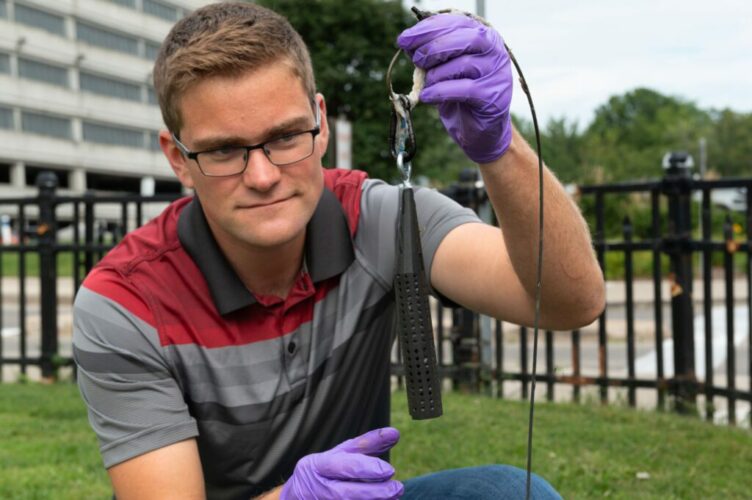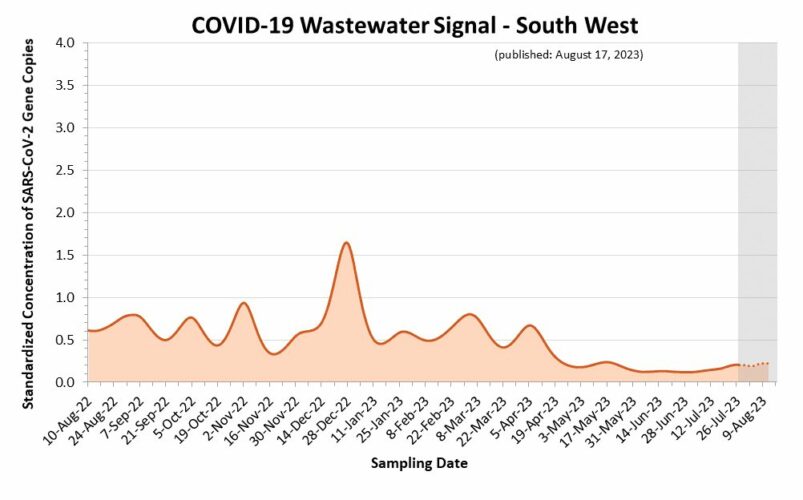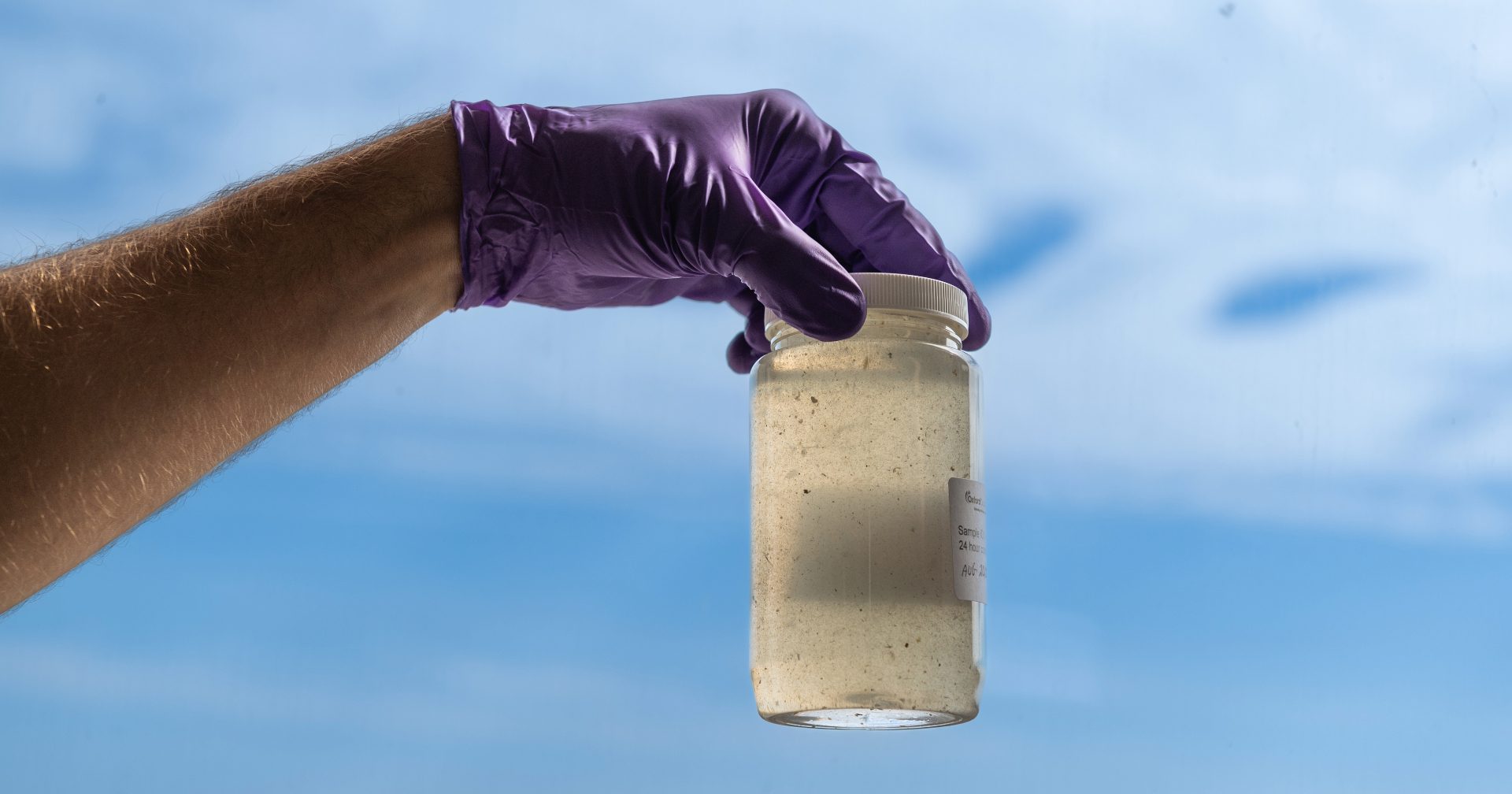Recognizing Western’s excellence in developing robust systems to track and fight global health threats, the government of Ontario has renewed and expanded the university’s wastewater surveillance project to track COVID-19, influenza and other emerging viruses until March 2024.
The expansion is part of an additional boost of $18.7 million in provincial funding for Ontario’s COVID-19 Wastewater Surveillance initiative.
The initiative, led by a consortium of universities, analyzes the genetic material of SARS-CoV-2 in wastewater, shed through human waste, as an indicator to provide public health agencies with insights into disease trends.
The renewal of the multidisciplinary project – jointly run by the Faculty of Engineering and Schulich School of Medicine & Dentistry – comes at a time when the globe, still grappling with the challenges posed by COVID-19, is facing a growing urgency to detect and preemptively respond to other viral threats of pandemic potential.
“Most people are vaccinated against COVID-19. They are either not getting testing for COVID or are testing at home. With reduced public reporting of cases, conventional surveillance methods for tracking the spread of SARS-CoV-2 are now unreliable. Wastewater surveillance can offer accurate insights into the community prevalence of COVID and other respiratory viruses, especially when it is combined with clinical data,” said Chris DeGroot, assistant professor in the department of mechanical and materials engineering at Western.
DeGroot is the lead investigator for the project launched in response to the pandemic in 2021. DeGroot’s team has been collecting samples from strategic locations in London, Ont. and surrounding areas. The samples are analyzed at Schulich’s level 2/3 biocontainment facility (CL2/3) – Imaging Pathogens for Knowledge Translation (ImPaKT) Facility.

“With the additional funding for research projects, my team is now studying how viruses are transported within wastewater systems and how that affects our estimates of prevalence in the community,” said DeGroot.
To enhance the accuracy of the data, his team is also developing models of wastewater collection systems across all six wastewater treatment plants and two sewershed sites covered by the project, to help account for complicating factors such as increased stormwater flows.
The project renewal also includes tracking for influenza, with a particular focus on strains such as H1N1 and H3N2. These strains account for a substantial proportion of Ontario’s yearly flu outbreaks and early detection of their trends can help mitigate the risk of outbreaks using targeted public health interventions like immunization.
Schulich Medicine & Dentistry researchers are also developing new methods to detect potential outbreaks from avian-origin viruses, especially the H7N1 and H5N1 strains.
Charting a new era in disease detection
Western is among the few provincial consortium members with the capacity to take crucial wastewater intel beyond tracking the viral load.
Using genomic sequencing on collected samples, researchers at ImPaKT are also keeping a tab on the range of SARS-CoV-2 variants present in the community and their evolution over time.
“It serves as an early warning for health-care systems to prepare for an impending wave,” said Eric Arts, executive director, ImPaKT, and Canada Research Chair in HIV Pathogenesis and Viral Control at Western.

“With new tools and technologies, we can now monitor novel viruses emerging within the population, especially when we consistently run surveillance programs,” said Arts, professor of microbiology and immunology at Schulich Medicine & Dentistry.
In addition to partnering with Ontario’s local health units, high-risk congregate settings, and municipalities to share wastewater results and analyses, Western researchers are playing a pivotal role in the national strategy against emerging COVID-19 variants.
Schulich professors Stephen Barr and Art Poon, along with DeGroot, are members of the Coronavirus Variants Rapid Response Network (CoVaRR-Net) – a network of interdisciplinary researchers from institutions across Canada that assist the federal government’s overall strategy to address the potential threat of emerging SARS-CoV-2 variants.
Pioneering a global strategy
Western’s wastewater and infectious disease experts are harnessing insights from the project and leveraging their global network to tackle pressing issues of worldwide equity in disease surveillance and response.
At the ImPaKT facility, wastewater samples from Uganda, Ghana, Colombia, Nigeria, Venezuela and Fiji are sequenced and analyzed every week to understand the prevalence of COVID-19 in these countries.
“COVID-19 testing is limited in low-to-middle-income countries. Drawing from our Ontario experience, our wastewater testing offers an affordable solution to monitor SARS-CoV-2 in these areas,” said Richard Gibson, director of operations, ImPaKT. Gibson coordinates and oversees all COVID-19 and HIV/AIDs research at ImPaKT.
The international wastewater project, led by Arts and Miguel E. Quiñones-Mateu, professor and Western Research Chair in Viral Pathogenesis at Schulich Medicine & Dentistry, is a collaboration among global researchers and health partners.
The team is developing methods to accurately study viruses in open sewage wastewater streams, demonstrating ways to incorporate the surveillance system in low-resource systems which do not have proper sewage.
Featured image: Wastewater signals serve as an early warning for health-care systems to prepare for an impending wave of COVID-19 or influenza. (Mac Lai/Schulich School of Medicine & Dentistry)









